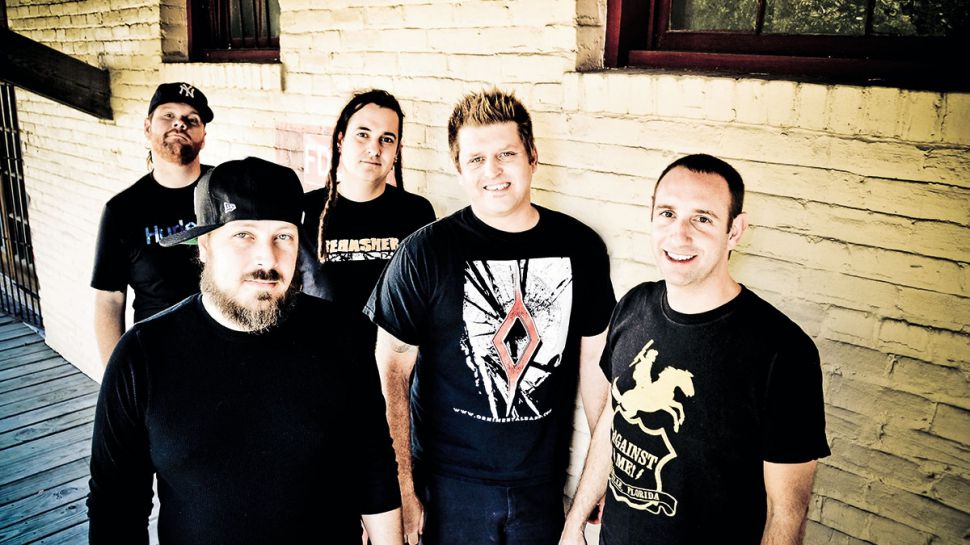Less Than Jake's Chris DeMakes: 10 guitar records that changed my life
Singer/guitarist talks punk, metal and classic rock
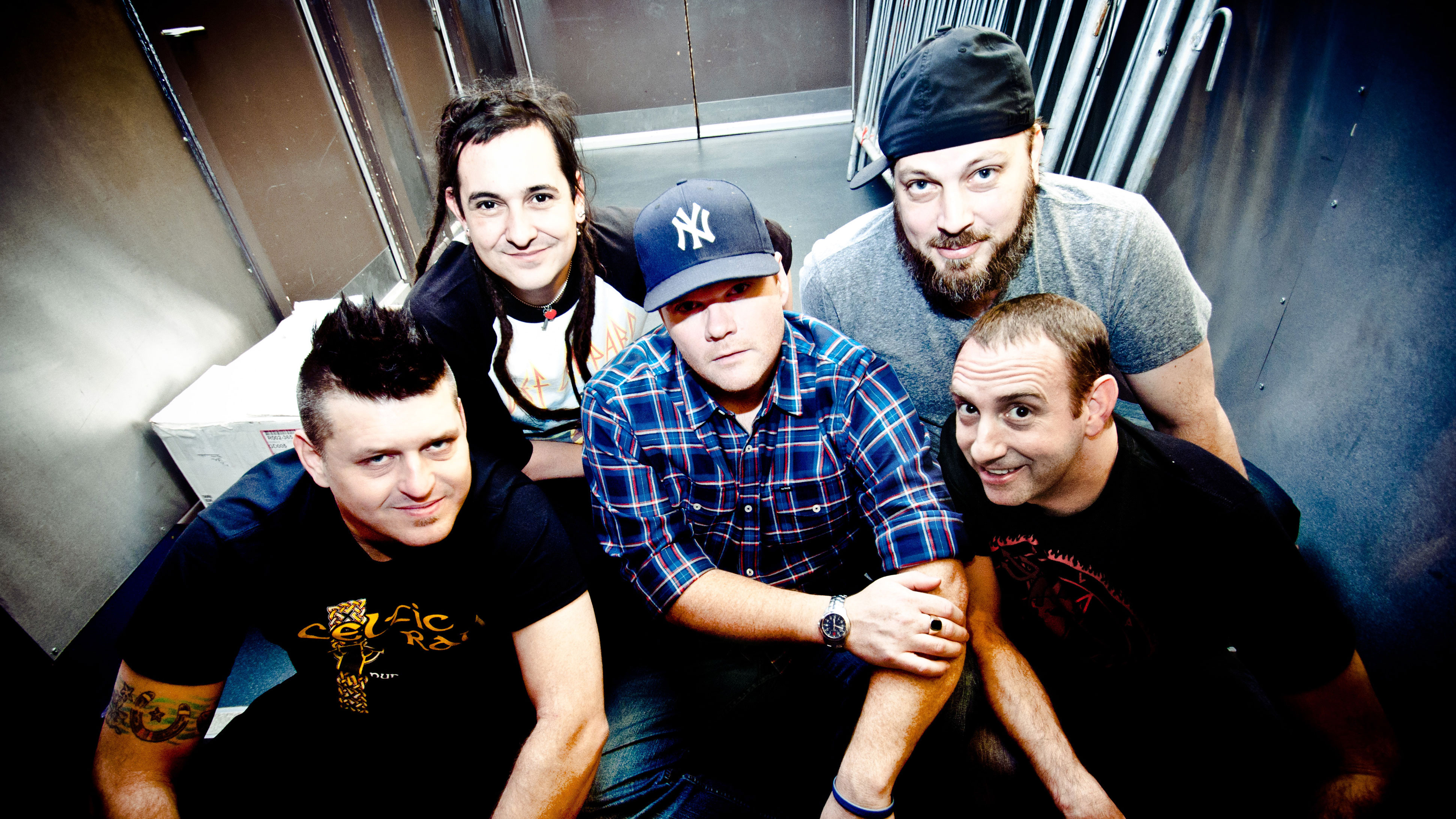
It’s been 25 years since ska favourites Less Than Jake formed in Gainesville, Florida - a three-piece with a horn section who joined forces not to make stacks of cash or change the world, but to play some bars and maybe make some music.
“It’s never been a money-driven thing,” says vocalist/guitarist Chris DeMakes. “We started Less Than Jake because we wanted to maybe play a bar, have some of our mates show up and drink a couple of beers, then record some music at some point. We still get off on writing music and releasing new stuff.”
In February, the band released a seven-track EP, Sound The Alarm, a clutch of classic-sounding Less Than Jake tracks, some written on the road. “We set out to do a full-length record, but we were on the road so much last year we didn’t have the time,” says DeMakes.
We could just play our records from the '90s and people would be happy with it. That’s not good enough for us, though. We like to keep pushing forward as a band
“We’d like to get a full length done this year. Hopefully we will, but whether there will be any of those ideas from before [the EP sessions]… Well, we tend to write in the moment. We don’t really go back.
"I used a Stratocaster on some clean stuff and mostly tracked the heavy guitars with a Gibson Les Paul,” DeMakes recalls when discussing what gear he used during the recording of Sound The Alarm.
“I had an EverTune on there so the guitar stayed completely in tune, and I was running a triple amp – a Marshall 900 mixed with a Bogner and maybe a Randall. They were on different channels and we blended all three heads together.
"There was a Fender Bassman in there somewhere, too. As for pedals, most of it would have been a delay or something on the lead parts. On the clean tone, I might have added a little reverb here and there. We don’t tinker too much with pedals and effects,” he explains. “We’re a three-piece punk band with a horn section, so it’s pretty straightforward.”
Less Than Jake are heading to the UK later this month for a mini-run of live shows, including Slam Dunk Festival (27-29 May), and DeMakes is looking forward to playing the new songs live.
“It’s what keeps us going; what keeps this fresh,” he says. “Bands aren’t selling tons of records any more, so we’re not doing this from a financial standpoint. This isn’t me taking a knock at us, but we could just play our records from the '90s and people would be happy with it. That’s not good enough for us, though. We like to keep pushing forward as a band.”
Any Less Than Jake fans will guess that the guitar records DeMakes cites as influences on him, and on Less Than Jake, will fall into the punk-rock spectrum, but he has a few surprises up his sleeve for you. Starting with his first album choice, a 17x Platinum-selling monster featuring one of Americana’s most famous songs...
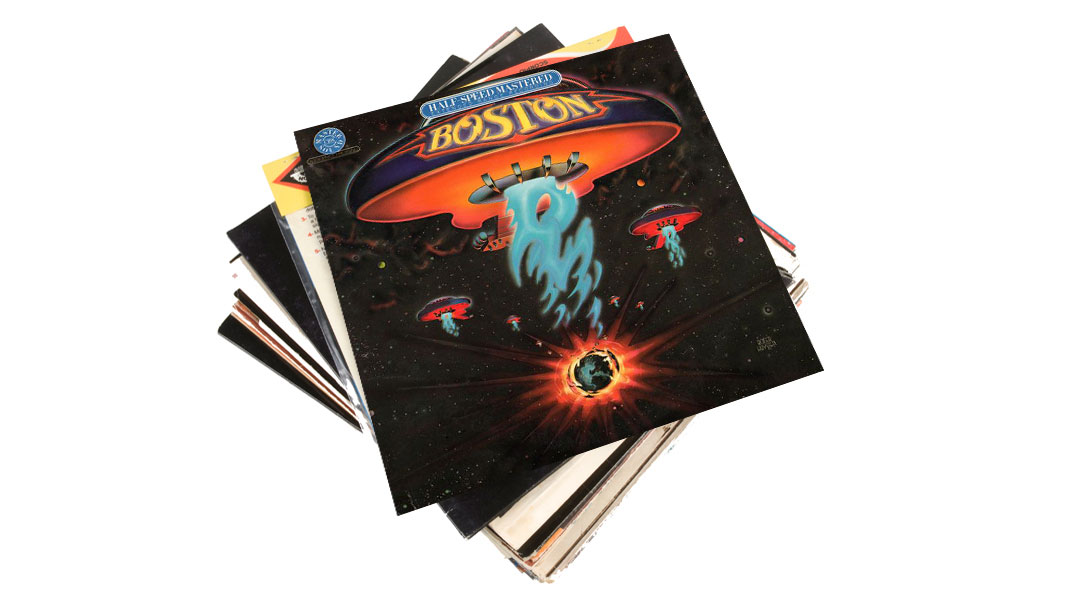
1. Boston – Boston (1976)
“This is something my dad played around the house when I was a kid. Nothing sounded like that Boston record when it came out.
"It was recorded analogue and the guitars sound massive. If you crank it up on a good stereo today, the guitars still sound really punchy.
"More Than A Feeling, Smoking’, Foreplay/Long Time... those songs still get played on classic rock radio, at least in the US. It was a very influential album.
"The harmonies were phenomenal, and Less Than Jake has always been a vocal harmony-heavy band. Boston was the start of that for me.”
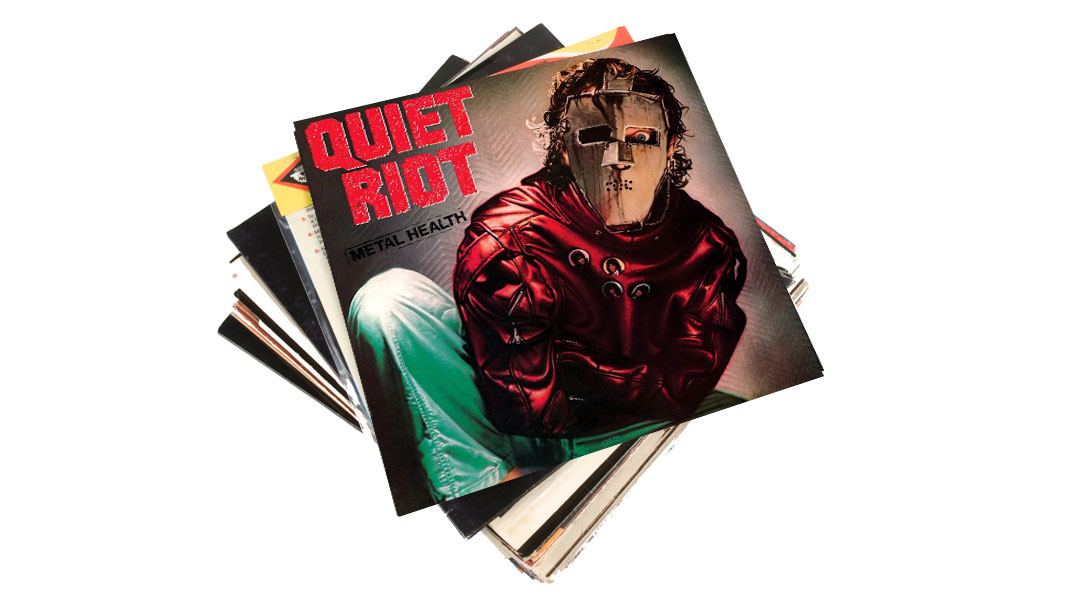
2. Quiet Riot – Metal Health (1983)
“This was the first full-length album I bought on cassette. If you listen to it today, it doesn’t hold up for shit.
"In fact, some of the guitar solos are out of tune and the vocals are all over the place. There’s a Slade cover on there [Cum On Feel The Noize] and if you listen to Noddy Holder, then [Kevin DuBrow] from Quiet Riot, they’re almost identical.
"I hate the phrase ‘guilty pleasure’, but as bad as this record sounds today it still puts a smile on my face. Metal Health was bombastic for the time.
"You had Quarterflash, The Human League, Soft Cell and all that pop synth stuff, then Quiet Riot came out of nowhere and had the first number one metal album in America. It was overshadowed only by Michael Jackson’s Thriller.”
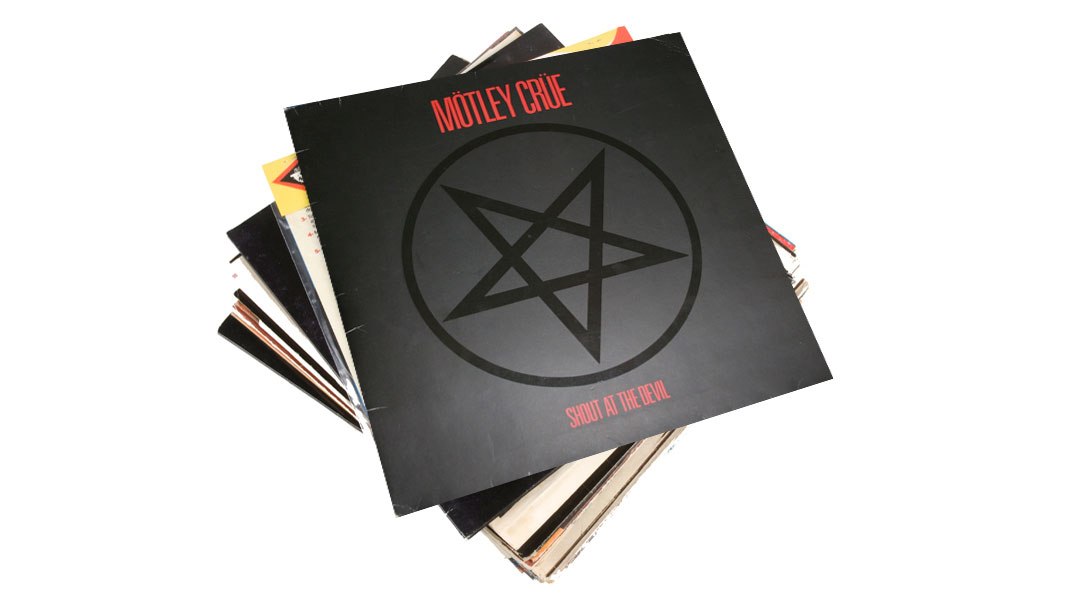
3. Mӧtley Crüe – Shout At The Devil (1983)
“Dr Feelgood is their best record, but Shout At The Devil was scary. I was in fifth grade when it came out. My grandparents hated the album’s satanic imagery.
Mick Mars was never flashy, he played what the song needed. That’s why I liked his style.
"I liked the band’s image probably more than I liked the tunes. Shout At The Devil was raw. I listened to that record a million times. Mick Mars gets the short end of the stick because he wasn’t a celebrity outside of Mӧtley Crüe, but when he joined the band he was well into his 30s when those guys were still in their early 20s.
"Mick Mars was never flashy, he played what the song needed. That’s why I liked his style.”
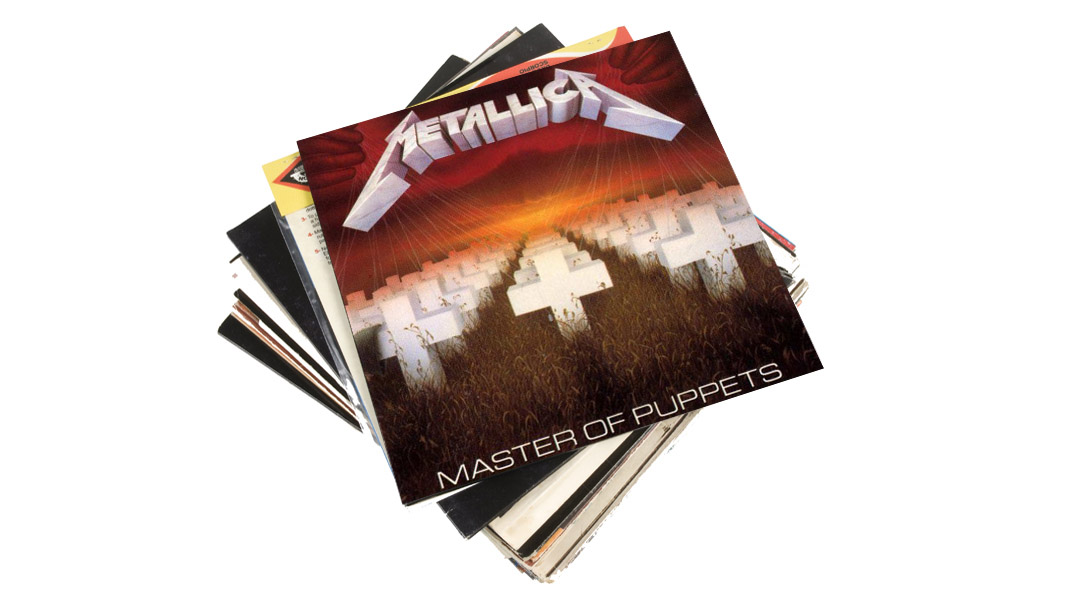
4. Metallica – Master Of Puppets (1986)
“I feel this is Metallica’s best record. It was life-changing for me. I remember driving to the mall with my mum and dad and buying Master Of Puppets in a record store there. We then put it on in the car.
"The intro has this soft Spanish guitar for 15 or 20 seconds, then all hell breaks loose. I’ll never forget the look on my parents’ face when they heard it. They were like, ‘What the fuck is this?’
"That look was all I needed to know that I liked the record. Master Of Puppets was lightning in a bottle. The guitars are amazing, the guitar harmonies are amazing. That dual-harmony lead between Kirk Hammett and James Hetfield is so good.”
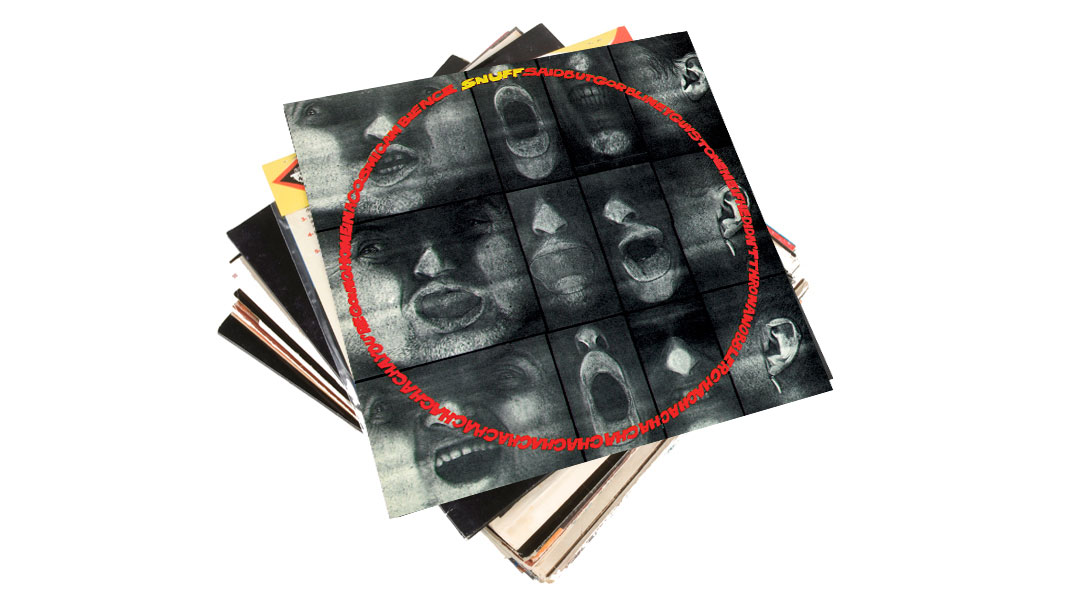
5. Snuff – Snuff Said (1989)
“Snuff is an English punk band that’s been around since the late 1980s. This is their first album and I got a cassette of it in 1990.
"It was like a 10th generation cassette, with so much hiss you could hardly hear the songs. I finally found the CD while on holiday in Philadelphia, in the summer of 1993.
"That was pre-internet, so finding Snuff Said on CD was like finding a pot of gold. The harmonies, the melodies... Amazing!
"If you haven’t heard this album, there are two songs you should check out: one is a cover of Tiffany’s I Think We’re Alone Now. That cover was an early influence on Less Than Jake doing so many of our cover songs.
"Snuff took a song that was so bubblegum and turned it into something. The other song is Somehow.”
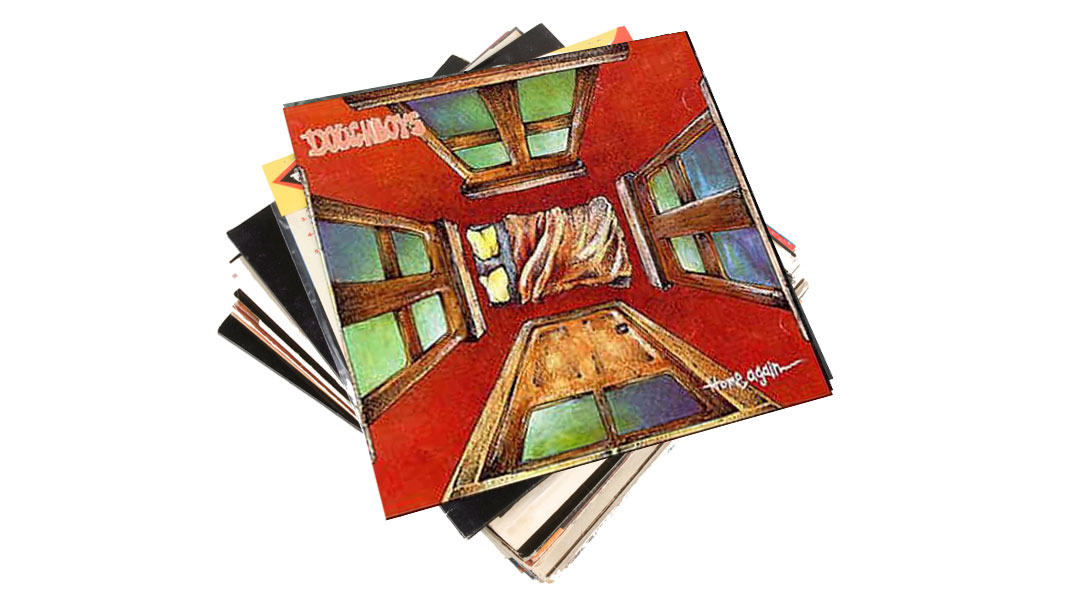
6. Doughboys – Home Again (1989)
“This record was produced by Bill Stevenson and Stephen Egerton, the drummer and guitar player from Descendents. Home Again was one of the first records they produced.
It doesn’t sound good. In fact, it sounds like shit
"It doesn’t sound good. In fact, it sounds like shit. But this record came along when I was really getting into punk rock. I liked the simplicity of it, the energy and the message.
"Doughboys had the harmonies, too. If you were to put this record on now you probably wouldn’t get get it, but I think they were phenomenal. There wasn’t any guitar flash, just straight up punk rock.”
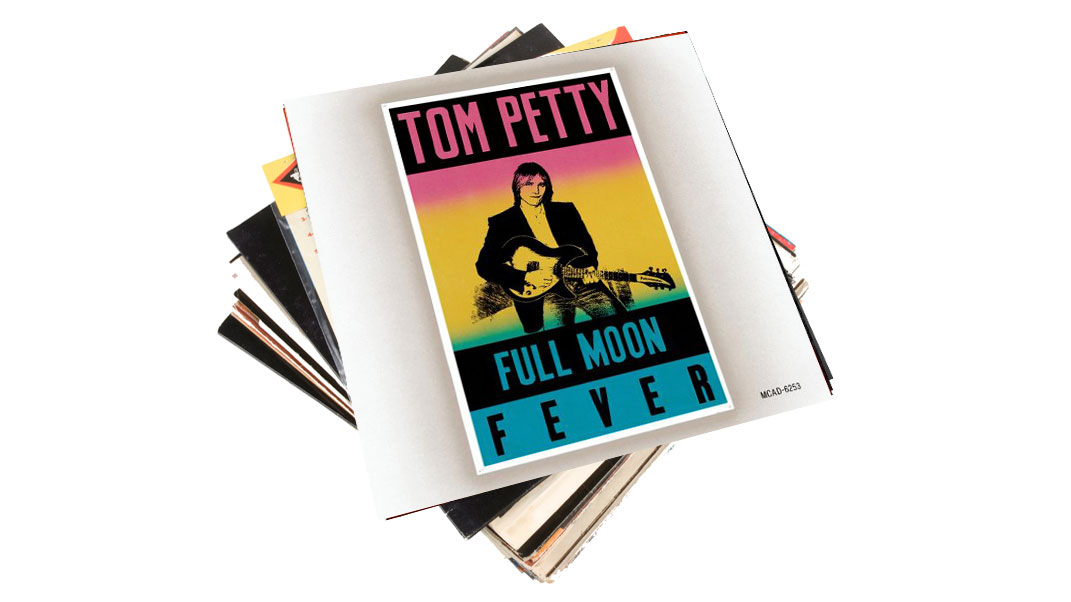
7. Tom Petty – Full Moon Fever (1989)
“Full Moon Fever is simple and honest, and the production is crisp and clear. Tom Petty is a true storyteller. He started in Gainesville, where Less Than Jake is from.
"I went to Gainesville to study, but it wasn’t until years later when I realised why those Tom Petty songs resonated with me – it’s because they were about honest living, hardworking, blue collar people who enjoyed a beer and a BBQ on the weekend.
"Mike Campbell, Petty’s guitar player in the Heartbreakers, played on the record. It’s not what they did guitar-wise, it’s what they didn’t do. It wasn’t flashy with solos and shit everywhere.
"If you listen to the bridge for the last chorus of Free Fallin’, it’s a simple guitar and drum thing. Really clean guitar but so heavy because it’s chunky and slow.”
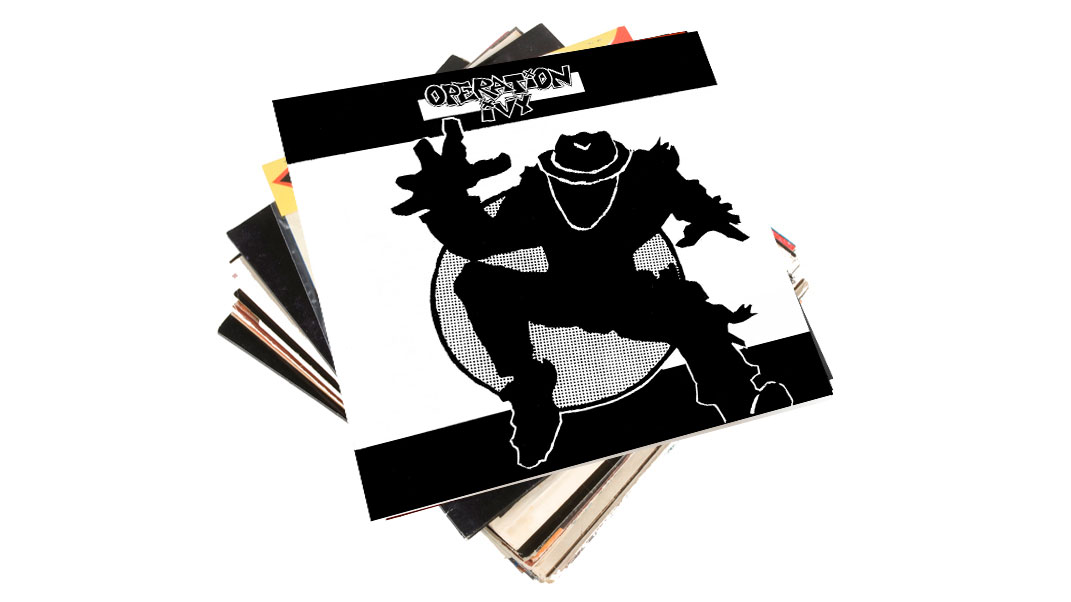
8. Operation Ivy – Energy (1989)
“Tim Armstrong and Matt Freeman from Rancid were in Operation Ivy. They carved out a sound that so many bands, Less Than Jake included, were trying to emulate in the early 1990s.
"If you listen to Energy, it’s not produced – you could tell it was one take on most songs. Energy is another album where you had to be there at the time to get it. I don’t know if I could play it for somebody that’s used to today’s music production.
I don’t care how good your band is, if you’re out of tune you suck. But not this record
"I guess, don’t listen to the sound, just listen to the songs. I love the rawness of it. Energy is one of two or three records where I can say, ‘It’s out of time, it’s out of tune, but it’s amazing.’
"I normally hate shit that’s out of tune. I don’t care how good your band is, if you’re out of tune you suck. But not this record. Sound System and Unity are good songs to start with. They have a great message behind them.”
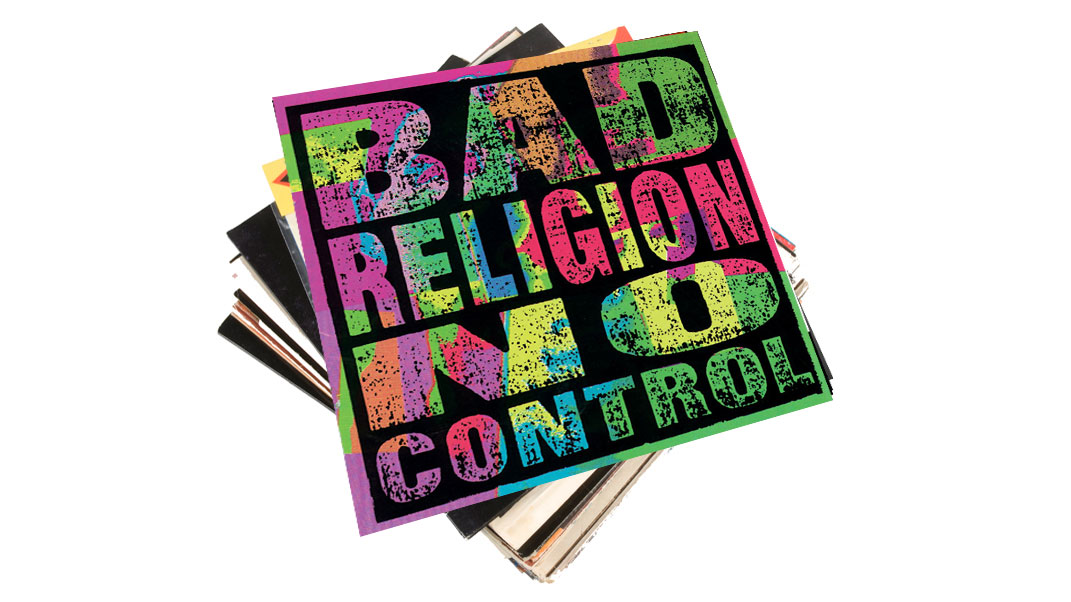
9. Bad Religion – No Control (1989)
“If anything, the guitar solos on this record are atonal. Kinda like what Black Flag did, guitar-wise, on their records.
When I first heard Bad Religion I thought they sounded like a 33rpm record of R.E.M. sped up to 45rpm. There were things I liked about R.E.M. – they were one of those bands where the 10 or so songs I liked by them I loved, but the other 100 songs they had I fucking hated. It was just weak.
"Bad Religion was tough. It was punk rock in all its aggression and speed, but at the same time it had this underlying pop element. No Control’s title track is amazing, and the songs You and Big Bang are great.”
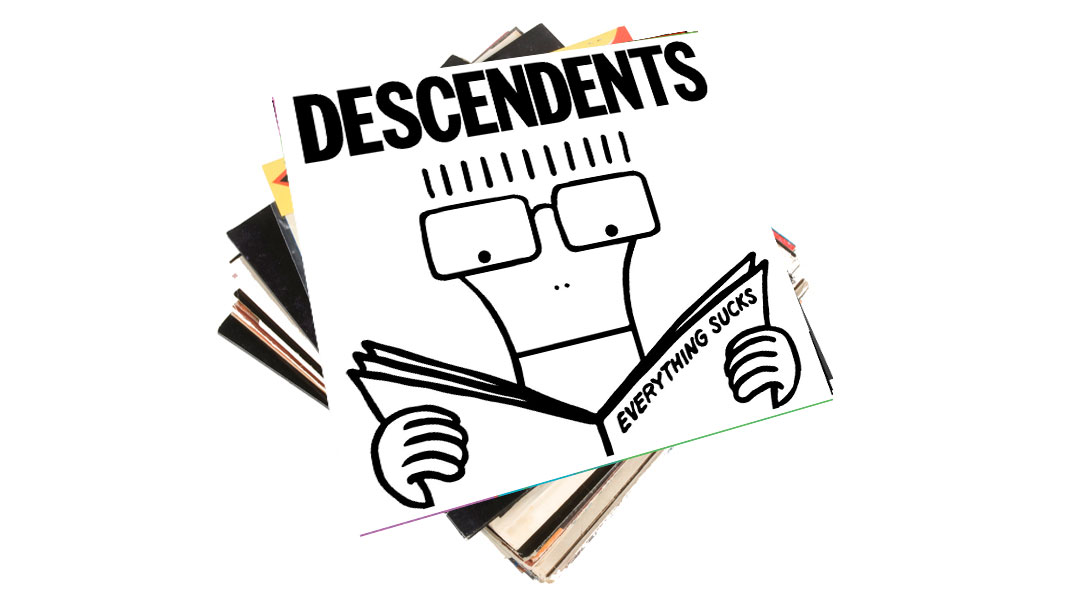
10. Descendents – Everything Sucks (1996)
“In the '80s, the Descendents' songs were amazing but the production always threw me off. It all came together on Everything Sucks. The band had been on hiatus for about eight years, so this was their comeback record.
"I was in New York, staying on some kid’s floor after a show, and he had an advanced copy of the album. We must have listened to it in the van thousands of times driving up the interstates.
"The guitar work was so tight. It was before Pro Tools, so everything was analogue to tape – there was no fixing shit. These guys are hands down the tightest live band I’ve ever seen. The guitar work is so crisp, fast and clear.
"You listen to a lot of punk rock and there’s angst and aggression. The Descendents had angst and aggression and speed, but the music was still crystal clear – you weren’t fighting to hear what they were saying or to hear the space between the instruments.
"Everything Sucks is one of my favourite punk records ever.”
